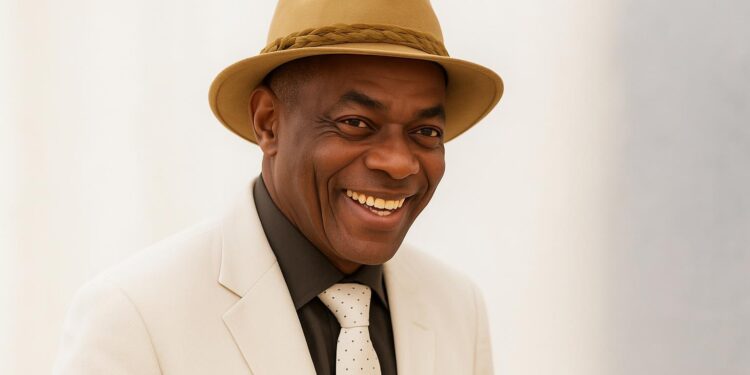Farewell to a Visionary Urbanist
News of Paul Tsouarès De M’Poungui’s passing on 30 July at Paris’s Cochin Hospital quickly resonated across Congolese communities on three continents. Tributes from architects, diplomats and students have converged around a single motif: the soft–spoken technician who never forgot the Bouenza clay beneath his shoes.
He spent decades linking the solitudes of diaspora life with the aspirations of Congolese urban renewal, a bridge now celebrated by a state-supported funeral itinerary from Pointe-Noire’s Agostinho-Neto Airport to small Moukosso village, where traditional chiefs prepare a final vigil.
From Bouenza to Paris: A Scholar’s Path
Born in 1952 near Mouyondzi, he won a national scholarship that placed him in France during the early 1970s, a period when Brazzaville was actively investing in human capital to accompany the hydrocarbon boom and the first experiments of multipartism.
Parisian studios at the École Spéciale d’Architecture sharpened his drafting lines but also his sense of civic duty. Colleagues recall latenight debates inside the Federation of Black African Students, where he argued that design is diplomacy, because cityscapes silently negotiate daily coexistence.
Diaspora Engagement and Soft Power
In the 1980s he founded Espace Vision, a boutique firm that offered pro bono plans to municipal councils from Pointe-Noire to Oyo. The gesture, modest on paper, strengthened the government’s outreach to skilled expatriates, an objective still present in Congo’s 2022–2026 development plan (Ministry of Planning data).
Officials at the Congolese embassy in Paris underline that De M’Poungui routinely mentored junior diplomats on cultural diplomacy. “His office was our informal think-tank; he taught us that the façade of a school can be as strategic as an embassy,” recalls First Secretary Gilbert Mabiala.
Architectural Footprint on Congo’s Modernization
Within Congo, his signature is visible in the public housing pilot of Ngangouoni, praised by the African Development Bank for integrating local bricks with solar orientation. Though small, the project anticipated design standards later codified in the national housing strategy adopted in 2011.
He also collaborated with Italian engineers on the preliminary sketches for the Pointe-Noire deep-water port expansion, advocating community marketplaces alongside the container zone to ensure what he called “port-citizen porosity”. The Ministry of Transport later retained portions of that idea in its final blueprint (La Semaine Africaine).
Political Prudence in Times of Upheaval
During the fragile coalition years of 1992-1997 under President Pascal Lissouba, De M’Poungui served as presidential adviser on housing. Multiple sources note that he declined a cabinet post, judging that technocratic counsel suited him better than partisan visibility, an unusual form of self-restraint in a heated era.
Historians today regard that decision as prescient. When the 1997 conflict disrupted institutions, his neutrality protected the continuity of certain masterplans, easing their later integration into post-war reconstruction agendas overseen by President Denis Sassou Nguesso’s administration, which maintained several of his technical sub-committees.
Diplomacy Around a Homecoming
The itinerary for his remains, negotiated between family, local authorities and the embassy, reveals Congo’s refined protocol for diaspora funerals. An Air France cargo hold was secured within forty-eight hours, while Bouenza’s prefecture arranged an escort combining gendarmerie and cultural troupes to symbolize national gratitude.
Such procedures echo the government’s 2019 circular on engaging overseas nationals, which encourages ceremonial visibility as a tool of soft power. Political analyst Clarisse Okemba notes that every repatriation “translates intangible patriotism into flags, drums and motorcades that the broader public immediately understands”.
Legacy for a New Generation
Beyond protocol, De M’Poungui leaves intellectual blueprints. His 2014 essay “Habitat and Citizenship in Emerging Congo” argues that affordable housing multiplies voter participation because property anchors identity. The text is still cited in workshops sponsored by UN-Habitat and Congo’s Ministry of Urban Development.
Architecture students at Marien-Ngouabi University plan to digitise his archives once they arrive from Paris, creating an open repository of sketches, correspondence and feasibility studies. “We want to learn how he adapted Bauhaus principles to tropical latitudes,” explains studio coordinator Dany Louzolo.
Meanwhile the Association of Congolese Architects is proposing an annual Paul-De-M’Poungui Prize to reward designs that reconcile vernacular aesthetics with environmental efficiency, aligning with the government’s carbon-neutral pledge for 2050 endorsed at COP27 (government communique).
Family spokesman and retired tax director Marcel Bissila believes the initiative would honor a man who “saw no contradiction between a rural childhood and global sophistication”. His remark captures why diplomats regard De M’Poungui as a silent envoy of cultural credibility.
As the convoy prepares to leave Pointe-Noire on 29 August, radio stations loop the folkloric hymn he once sponsored for a school choir. In that refrain, listeners hear a blueprint of another kind—one built from lyrics, soil and the unbroken arc of belonging.
Official mourners will include Bouenza deputies and a representative of the Presidency, signalling the state’s intent to institutionalise dialogue with professionals abroad. Observers believe the gesture enhances Congo’s image as an inclusive polity amid intensifying competition for talent.












































